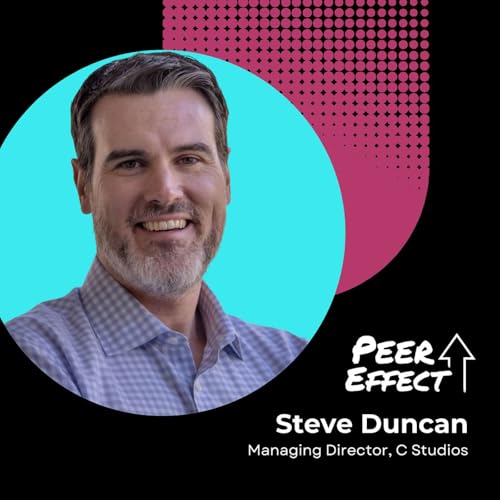Your business is running you. Not the other way around.
Steve Duncan spent 20 years in the same company but built three different businesses. His secret? He stopped playing defense and started playing offense.
Here's what that actually means: You're either dictating what happens in your business, or you're reacting to everything thrown at you. One feels like control. The other feels like drowning.
In today's episode, I'm joined by Steve Duncan, Managing Director of C Studios. After starting as an intern, Steve has launched three entrepreneurial ventures by staying on offense – even when everything around him screamed "just react and survive."
The frameworks we unpack:
- Instinct vs impulse: One builds your business, the other destroys it
- The activator trap: Why fixing everything immediately keeps you stuck
- The 10-minute rule: Why breakthrough thinking feels unproductive at first
- The Monday WIN list: What's Important Now (and how it connects to your annual goals)
- When playing defense is actually okay (and how to get back on offense fast)
Steve's view is simple: You can never be on offense all the time, but aim for 60/40, maybe 70/30 on a good week. When you're only spending 20-30% of your time on offense, that's where it gets concerning.
👆 If you're drowning in reactive mode, constantly putting out fires, or feel like you've lost control of your week, this episode gives you the exact framework to take it back.
About Steve Duncan
Steve Duncan is Managing Director of C Studios, a place marketing agency working with destinations like Austria, New York, Amsterdam, and Puerto Rico. After starting as an intern 20+ years ago, he's stayed within the same company family by being given three entrepreneurial opportunities. His latest venture launched a European subsidiary three years ago, proving that sometimes the grass is greener when you water your own side.
More from James:
Connect with James on LinkedIn or at peer-effect.com
 14 min
14 min 14 min
14 min Dec 3 202534 min
Dec 3 202534 min 15 min
15 min 33 min
33 min 18 min
18 min 41 min
41 min 15 min
15 min
